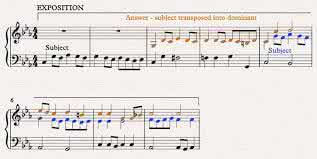fugue
US /fjuːɡ/
UK /fjuːɡ/

名詞
1.
フーガ
a contrapuntal compositional technique in two or more voices, built on a subject (theme) that is introduced at the beginning in imitation and which recurs frequently in the course of the composition.
例:
•
Bach's 'Toccata and Fugue in D minor' is a masterpiece of classical music.
バッハの「トッカータとフーガニ短調」はクラシック音楽の傑作です。
•
The composer skillfully wove multiple melodic lines into a complex fugue.
作曲家は複数のメロディーラインを巧みに複雑なフーガに織り込んだ。
2.
フーガ, 解離性遁走
a state or period of loss of awareness of one's identity, often coupled with flight from one's usual environment, associated with certain forms of hysteria and epilepsy.
例:
•
After the traumatic event, the patient experienced a dissociative fugue, wandering far from home.
トラウマとなる出来事の後、患者は解離性フーガを経験し、家から遠く離れてさまよった。
•
The doctor diagnosed him with a psychological fugue state.
医師は彼を心理的フーガ状態と診断した。
Lingolandでこの単語を学ぶ